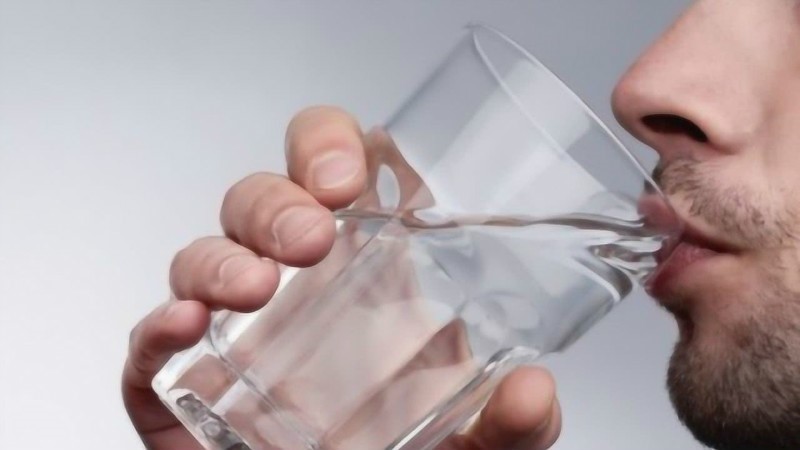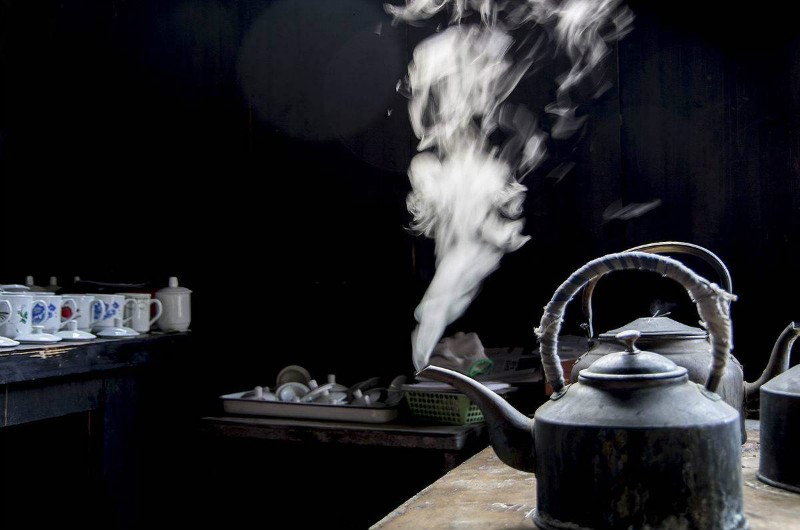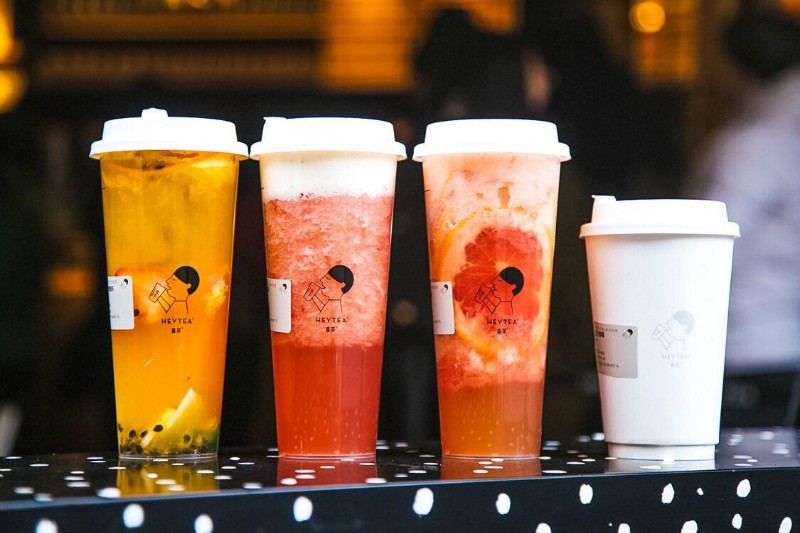Chinese's affection to a nice cup of steaming hot water has lingered throughout centuries, regardless of the weather. Why are they so loyal to this beverage? Here we find out.
A hot/warm glass of water is a standard beverage in China even during summer time or traveling. You can tell from the number of people carrying the vacuum-sealed thermos, most likely with a twist of goji berries, ginseng, or chrysanthemum flowers inside.
As the country is turning modern and international, Chinese is slowly catching up with the Western foods such as cheese, milk, wine and avocado, as well as cold drinks, which are getting their market quickly among young people. However, you can still easily find your young colleagues and students who prefer warm water more than any other drinks.

Why?
Since at least 2,000 years ago, traditional Chinese medicine gave hot water special functions - it can expel cold from the body while warm the body organs, especially for stomach, which prefers warmness rather than coldness. A cold stomach will cause diarrhea when eating or drinking cold food. This helps detoxify the body and relax the muscles. Cold water supposedly has the opposite effect, slowing organ function and causing painful muscle contractions. Thus, hot water is often touted as the cure for everything from sore throats to stiffness to cramps to fatigue.
It can expel cold from the body while warm the body organs, especially for stomach, which prefers warmness rather than coldness.
During the summer, according to TCM, it’s even more important to drink hot water because nowadays people are vulnerable to the “A/C illness” (summer flu) because they stay too much inside A/C rooms. Drinking hot water can increase body temperature and decrease the chance to get sick.
The Historical Roots
In ancient China, cold water was considered an upper-class privilege. For the majority, the expensive fuel could only allow them to keep warm and cook meals. Hot water was reserved to the vulnerable such as the elderly, the children and the pregnant.
Since the beginning of 20th century, the government had promoted the benefits of consuming hot water and explained how drinking unboiled cold water could contract diseases in human body.At that time, boiled water was sold as a popular commodity with affordable price, which saved quite a lot of fuel expense for individual family.
After the P.R.C established in 1949, public water boiling service was set up to distribute free hot water in every community, factory, government department, schools and workplaces. The majority didn’t start to boil their own water until 1970s and for many urban dwellers it continued until 1990s, when many state-owned companies who had been supplying their drinking water went bankrupt.

Make You Feel Better
It is believed by Chinese people that when you are sick, drinking hot water helps you getting better. And for girls in their periods, Chinese people also think drinking hot / warm water will help them relieve.
If you’ve ever caught a cold while living abroad in China, or while in the company of a Chinese friend or relative, you’ve likely heard someone say,drink more hot water! This piece of advice is doled out to anyone who is feeling unwell for just about any reason.

The Water Quality
Unlike in the developed countries, tap water in most cities can't meet the drinking standard. High temperature sterilization is the best choice for families. For this sanitation reason, people continue to boil tap water for their primary drinking source.
Today, it’s just good practice to boil water before drinking it. Even in large cities like Beijing and Shanghai, tap water in mainland China isn’t safe to drink. If you aren’t careful, you can end up with a bad case of diarrhea .
Growing Popularity of Cold Beverages
While hot water and other hot beverages remain the norm, Chinese consumers’ taste for cold and iced beverages has grown in recent years. Walk into any Chinese convenience store or supermarket and you’ll see refrigerators filled with ready-to-drink tea, coffee, juice, and sports drinks.











